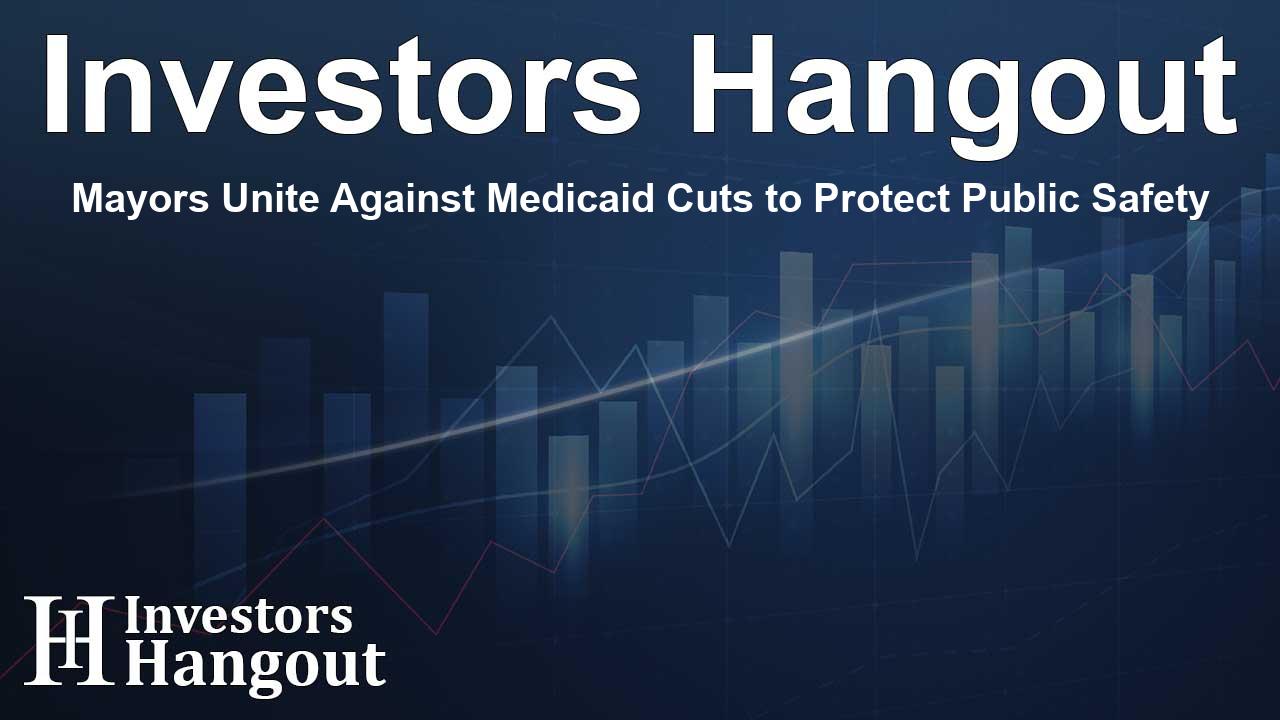Mayors Unite Against Medicaid Cuts to Protect Public Safety

Mayors Express Concerns Over Medicaid Cuts Affecting Safety
In recent communications, key mayors across the nation have raised urgent concerns regarding proposed cuts to the Medicaid program. These cuts are perceived not merely as budgetary adjustments but as potential threats to public safety and the overall well-being of their constituents.
The Link Between Medicaid and Public Safety
Medicaid plays a fundamental role in funding services that address critical issues such as behavioral health and substance abuse. With many individuals experiencing mental health crises without adequate support, the presence of accessible healthcare becomes paramount for local law enforcement who often first respond to these situations.
Challenges Faced by Officers
The letter from prominent mayors emphasizes that police officers and emergency medical technicians (EMTs) are frequently the first to arrive on-scene during high-stress situations involving individuals in dire need of mental health support. These issues are not strictly public health matters; they are intertwined with public safety. Cuts to Medicaid could exacerbate these challenges, resulting in a more dangerous environment for communities.
Impact of Cuts on Local Communities
As Congress deliberates on adjustments to Medicaid, mayors are voicing concerns that reducing funding will hinder ongoing progress toward enhancing public safety. According to a recent survey, violent crime rates have seen a notable decline in various cities, attributed in part to community support programs that Medicaid helps sustain.
Data Supporting Decreased Crime Rates
The latest findings reveal significant reductions in violent crimes in surveyed cities, with improvements such as a 20% drop in homicides during recent months. These statistics further underline the importance of maintaining robust Medicaid support for programs that address the complex needs of citizens.
Highlighting the Role of Medicaid
Mayors outline the critical functions of Medicaid in local law enforcement and community safety initiatives:
- Supporting Crisis Response and Diversion: Funds allocated by Medicaid help communities manage emergencies more effectively, allowing police forces to devote attention to serious public safety threats.
- Reducing Recidivism: Access to healthcare during reintegration reduces the likelihood of individuals reoffending, thereby maintaining safety within the community.
- Protecting First Responders: Community-based healthcare reassures that first responders are not ensnared in dangerous confrontations, allowing them to focus on emergencies.
- Stabilizing Families and Neighborhoods: Medicaid addresses social determinants of health, creating environments where communities thrive and remain safe.
Addressing Homelessness through Medicaid Support
Beyond public safety, Medicaid also plays an influential role in addressing homelessness—a significant public safety issue. Ensuring continuous access to healthcare aids individuals facing homelessness and mitigates associated risks.
Services Supporting the Homeless
Key provisions of Medicaid support individuals experiencing homelessness by offering essential healthcare access and stabilization services. Specific strategies include:
- Providing access to care that addresses health issues, significantly reducing the risk of homelessness.
- Ensuring stabilization services for those facing chronic homelessness.
- Supporting necessary medical services which ultimately alleviate financial burdens, making housing more attainable.
The Urgent Call to Action
Mayors urge policymakers to recognize Medicaid as more than merely a health program; it is a critical public safety tool. Cuts to this essential service would not only affect individuals relying on Medicaid but could lead to wider societal impacts, including increased homelessness and crime rates.
Frequently Asked Questions
Why are mayors concerned about proposed Medicaid cuts?
Mayors believe cuts to Medicaid will jeopardize public safety by undermining critical health services that support individuals with mental health and addiction issues.
What role does Medicaid play in maintaining public safety?
Medicaid funds critical programs that address behavioral health and substance abuse, which helps prevent crime and supports first responders.
How have crime rates changed recently according to the mayors' letter?
Recent data indicates a decline in violent crime rates in various cities, highlighting the successes of supportive community programs backed by Medicaid.
What services does Medicaid provide to help the homeless?
Medicaid provides access to healthcare for individuals facing homelessness, offering essential services that alleviate health issues which often contribute to their situation.
What steps are mayors taking to advocate for Medicaid?
Mayors are calling on Congress to preserve and strengthen Medicaid, emphasizing its importance not only for health but for overall community safety and stability.
About The Author
Contact Owen Jenkins privately here. Or send an email with ATTN: Owen Jenkins as the subject to contact@investorshangout.com.
About Investors Hangout
Investors Hangout is a leading online stock forum for financial discussion and learning, offering a wide range of free tools and resources. It draws in traders of all levels, who exchange market knowledge, investigate trading tactics, and keep an eye on industry developments in real time. Featuring financial articles, stock message boards, quotes, charts, company profiles, and live news updates. Through cooperative learning and a wealth of informational resources, it helps users from novices creating their first portfolios to experts honing their techniques. Join Investors Hangout today: https://investorshangout.com/
The content of this article is based on factual, publicly available information and does not represent legal, financial, or investment advice. Investors Hangout does not offer financial advice, and the author is not a licensed financial advisor. Consult a qualified advisor before making any financial or investment decisions based on this article. This article should not be considered advice to purchase, sell, or hold any securities or other investments. If any of the material provided here is inaccurate, please contact us for corrections.
